Keeping you informed
Newsletter June 2022
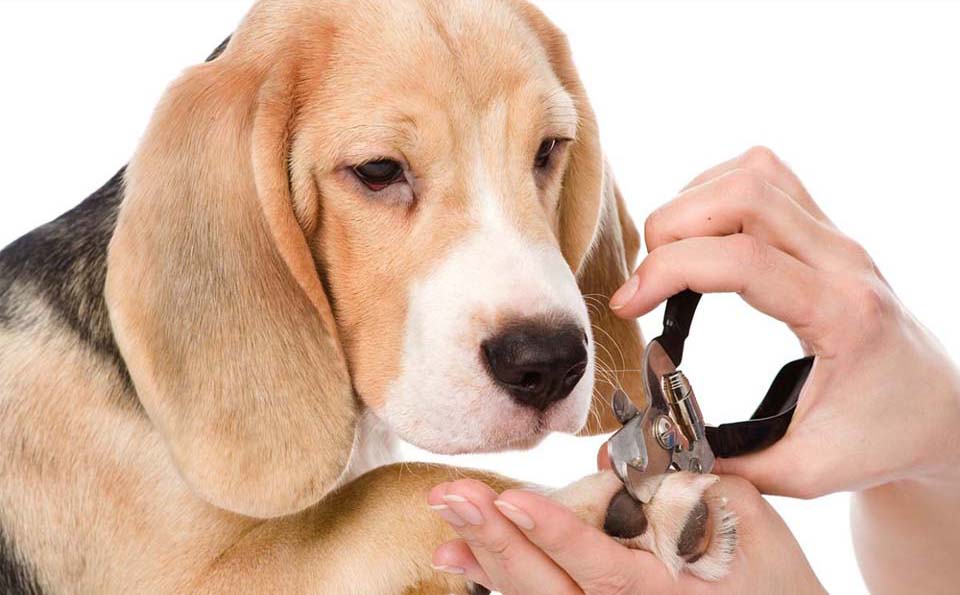
Practice News
There has been a lot of exciting news in June at Turramurra Veterinary Hospital!
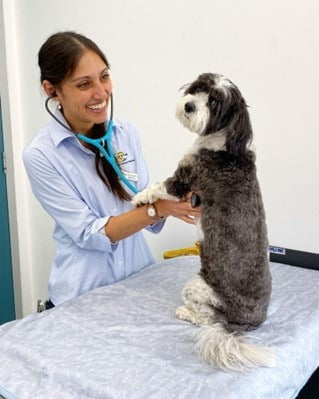
This month we welcome our newest Veterinary Surgeon, Dr Ray Salleh. Dr Ray graduated from Melbourne University and has had 5 years experience working in Kempsey (her home town) and then private practice in Perth for several years, where she lived close to the beach and spent as much spare time as possible with her own dog, a gorgeous long-haired Chihuahua called Huey! Dr Ray is dedicated towards offering a high standard of veterinary care for all animals, but is particularly enthusiastic about Chihuahuas, and has grand plans to start a senior Chihuahua rescue in the future!
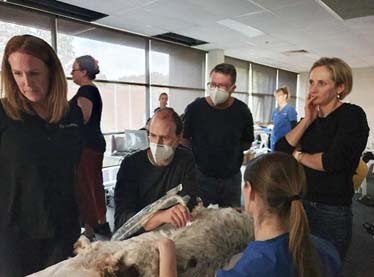
Last weekend, our vets also attended a course in the use of ultrasound in emergency medicine. With increased use of ultrasound, critical patients can be assessed promptly using a non-invasive and targeted approach. This can improve patient outcomes by getting vital answers sooner at the point-of-care using ultrasound with the goal of getting your precious fur babies back at home with you where they belong.
During June, Turramurra Veterinary Hospital supported St Edmunds School, with wonderful teachers who cater for children with special needs. This month, we helped the school raise money by donating a hamper and $1000 to show our support for such a worthy cause. Here is the lucky winner showing off his prize!

We would also love to take this time to thank St Edmunds for all the amazing work they do in our community.
We had some great questions come through for our Ask the Vet section, so if there is a question you really want to know the answer to about your pet, email it through to info@turramurravet.com.au to be included in our next edition.
The easiest way to book a veterinary consultation is to Book Online via our website at www.turramurravet.com.au or click here. Our vets are also happy to conduct a telehealth consultation where suitable, to allow extra flexibility for clients, particularly if you are isolating at home.
The Dos and Don’ts of Desexing your Pet
Author: Dr. Gretta Howard – Senior Veterinarian
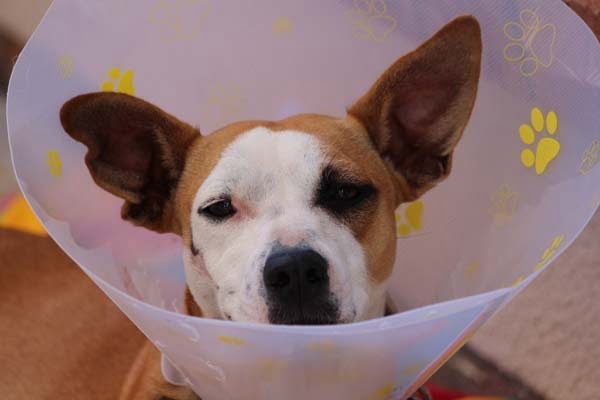
Unless you’re a breeder, desexing is an important part of being a responsible pet owner. The benefits of desexing far outweigh the risks but the right timing is important. Apart from reducing the number of unwanted puppies or kittens, the benefits of desexing range from avoiding unwanted testosterone-related behavioural traits to medical problems later in life.
What is desexing?
Desexing is a routine operation performed under general anaesthesia and involves removing the ovaries and uterus from a female (known as ovariohysterectomy or ‘spay’) or the testicles (known as castration) in males.
When should desexing be performed?
Click on the link to learn all you need to know about desexing your pet.
5 Top Tips for Trimming your Dog’s Nails!
Author: Katie Bedrossian – Pet Behaviour Consultant
While many people love going to the salon for a mani or pedi, our canine companions don’t understand that their nails sometimes need grooming too. The process of having to stay still while someone touches a sensitive body part (such as feet and nails) can be a bit much for some dogs. Some dogs wear their nails down effectively on walks, however dogs who are smaller, lighter or have a different walking gait will need nail trims as well to keep the nails healthy and less prone to breakage and discomfort.
So what’s the best technique for how to clip dog nails?
Read on for 5 tips that make nail clipping easier for both yourself and your dog!
- Start with having two people available, one to hold and one to clip. A third person can be beneficial to give treats.
- Clip nails in a position your dog is comfortable. This may require a bit of experimentation. Some dogs love lying on their backs resting on your legs while you sit on the floor, some dogs prefer the freedom of standing on the floor as the choice means they don’t panic and some prefer being on a table with a non-slip mat as they calm down due to not seeing the table as a play area.
- Always start with massaging, stroking and scratching your dog in a spot they enjoy being petted. This may be a belly rub (if they are lying on their back on your legs) or a neck/shoulder rub or a scratch on the rump before you slowly move your hands towards the paw and nails.
Click on the link to get the last two tips on clipping your dog’s nails.
Pet Of The Month: Colin Spencer
Author: Freya Britt-Lewis – Customer Care & Pet Health Care Writer

Colin the rambunctious Cavalier is an excitable, happy-go-lucky boy who is loved by all the staff, although he is a particular favourite of Customer Care Team member, Freya. When he isn’t at the clinic for his own consults, Colin can be found attending his brother Ari’s appointments for emotional support! What a good little brother!
Staff Profile: Dr Olivia Chin – Veterinary Surgeon

Why did you choose to pursue a career in veterinary medicine and surgery?
Apparently I told my mum at the age of 3 that I wanted to be a vet! At school I enjoyed science and in particular, biology classes, and that, combined with my love for animals steered me towards a career as a veterinarian. I especially like the problem solving aspect of the profession and appreciate a challenge. I didn’t want a desk job, I like being on my feet and working in an environment with animals.
What is the most unusual case you have seen at Turramurra Veterinary Hospital?
We currently have a little stray rescue kitten called “Sweet Pea” staying at the clinic until she finds a home. She had originally presented extremely thin with her collar caught under her front leg, creating a deep skin wound. After a few weeks recovering with us in hospital, Sweet Pea was diagnosed with lungworm, via chest x-rays and a fluid sample from her airways. Lungworm is a parasite that cats can catch from hunting mice. This was extremely unusual and unexpected! The chest x-rays were spectacular (not in a good way) and she is lucky to be alive! Sweet Pea is currently responding well to treatment and is still her usual cuddly purry self.
What do you most enjoy about working with the Turramurra Veterinary Hospital team?
Everyone is friendly, easy to talk to and we always have a good laugh around the practice. There is a lot of support within the team. Whenever you need to bounce ideas off one another the other veterinary team members are there to help. Our team is also extremely experienced with a wide variety of knowledge, which I enjoy being a part of.
Do you have any particular areas of interest in veterinary practice?
I love all aspects of my career but if I had to choose just one it would be surgery. It’s pretty exciting to solely focus on completing a complex surgery in front of you. I find every aspect of veterinary practice fascinating and enjoy being able to use my skills in a variety of ways. I am sure I will enjoy working as a vet for many years to come!
Feline Friends: Dental Health – Caring for your Cat’s Teeth
Author: Freya Britt-Lewis – Customer Care & Pet Health Care Writer
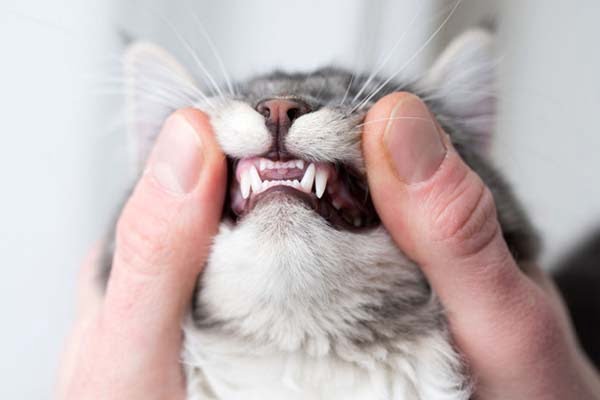
We can all agree that dental hygiene is among the most important daily health routines a person can have. Not only does it leave our breath feeling minty fresh and clean, it also keeps us medically healthy. Our cats are no different to us – dental care for cats is just as important as it is for you, your children, or even your dog.
Dental care is a key part of your cat’s everyday health and vitality.
It is a well-known fact that 70% of our cats over three years of age have dental disease, otherwise known as periodontal (gum) disease. This is an uncomfortable condition caused by plaque and tartar build up and an increased bacterial load around the teeth and gums. Other adverse effects on your precious family members include:
- Bad breath (halitosis)
- Yellow or brown crust cemented onto teeth (tartar)
- Swollen, red or bleeding gums (gingivitis)
- Unwilling to eat harder food, or a change in eating habits
- Tooth loss
- Drooling
- Weight loss (though in the majority of cases, a cat would rather continue to eat through pain rather than go hungry)
Lack of dental hygiene is not the only cause; age (older pets are more susceptible), breed (flat faced cats that have crowded or misaligned teeth), and diet also plays a role. It is imperative that cat owners are aware of these issues and create individual routines for their cats to combat this disease.
Read the full article on caring for your cat’s teeth.
Innovations: Proheart Injection – Protect your Dog from Heartworm Infection!
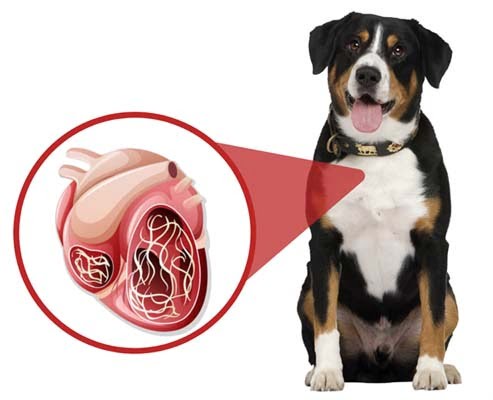
Firstly, what are heartworms? The short answer is they are large, parasitic worms that infect mainly dog’s hearts (and occasionally cats). The larvae are transmitted by mosquito bites and then grow into large adult worms inside the pulmonary artery and heart chambers, which interferes with the ability of the heart to function properly. This is why protection against this invasive parasite is so important in our dogs! Heartworm disease is an extremely serious condition that can cause heart failure, lung disease and death (if left untreated).
Just one bite from a mosquito can give your dog heartworm.
So how can we, as dog owners, keep our beloved canines safe?
Prevention is always a better solution than a cure.
The Proheart Injection is a simple once-a-year injection that eliminates the need for monthly heartworm tablets. Forgetting to administer monthly treatments is one of the leading causes of deadly heartworm disease in dogs.
The active ingredient, moxidectin, is contained in slow-dissolving microspheres that are stored in your dog’s fat-storing connective tissue. The medicine is released evenly over the course of the year, keeping your dog consistently protected from heartworms all year round until their next injection.
Proheart injections are a convenient solution to a deadly disease. If you are interested in getting one for your pooch, or would like further discussion, be sure to give the friendly Customer Care Team a call on (02) 9988-0198 to book in with one of our vets today.
Ask the Vet!
Author: Dr Ray Salleh – Veterinarian Surgeon
1. What are some common signs that my dog has allergies?
Allergies occur when your pet’s immune system overreacts or has a hypersensitivity to a particular foreign substance. This foreign substance is called an allergen and allergens will differ per individual. Some dogs will not have any allergies while others may be allergic to multiple substances throughout their lives.There are many substances that can act as allergens. Common examples include pollens, grass, mould spores, dust mites, flea saliva, certain foods and some medications.The severity of allergies varies from pet to pet and can range from minor irritation to anaphylaxis – which can be life threatening.The most common signs of allergies include:
- Itching, scratching or licking of a particular area or all over the whole body
- Hair loss
- Red or irritated skin
- Ear infections
- Rash
- Coughing, sneezing, and/or wheezing
- Watery eyes or nasal discharge
- Vomiting
- Diarrhoea
Signs of anaphylaxis include:
- Severe itching or hives
- Pale or bluish gums
- Excessive salivation or drooling
- Vomiting and/or diarrhoea
- Difficulty breathing
- Unsteady or wobbly gait
- Collapse
While many allergies cannot be completely cured, there are treatment options available to help relieve your dog’s allergy signs and make them feel comfortable. If your pet is showing signs of anaphylaxis it is considered an emergency so seek veterinary care immediately.
2. How often should I wash my dog?
Many of you may be tempted to wash your dog multiple times a week, similar to ourselves. It may surprise you that the general guideline for bathing dogs is actually around once every four weeks (even less in some breeds). The reason for this is that if you wash them too frequently it can dry out their skin, stripping the natural oils in the coat and contribute to certain skin disorders. While we do want our pets smelling fresh and clean in our homes, we need to find a balance between health and hygiene. If your dog is really active and plays in mud or gets covered in sand at the beach then they may need a bath more often.There is a wide variety of dog shampoos and conditioners to choose from and at Turramurra Veterinary Hospital, we stock dermatologist recommended shampoos, including Dermcare’s Aloveen Oatmeal Shampoo and Conditioner and the PAW shampoo Mediderm for dogs prone to yeast or bacterial infections. These and others are available to purchase over-the-counter.
3. What can I do at home to best help my pet recover from surgery?
If your pet has had surgery, they will have been given a general anaesthetic or sedative. These drugs can take a number of hours to wear off and may cause some patients to appear drowsy or wobbly on their feet for a day or so. Over the next day or two their behaviour should return to normal.On arriving home, you should keep your pet warm and comfortable indoors by providing a soft clean bed, ideally in a quiet and draught-free room. Unless otherwise instructed, your pet should be offered a drink of fresh water. Once your pet has settled in, he or she can be offered a small amount of food. Unless any special feeding instructions have been given, you can return to their normal diet and feeding the following day. Ensure that your dog can go outside to go to the toilet and your cat has access to a litter tray. Please do not give your pet any drugs other than those prescribed without checking with us first. Always complete the full course of antibiotics (if provided), even if things are improving.It is important to keep your pet quiet and avoid strenuous exercise, particularly if there have been sutures. Exercise will cause tension on the wound, and may cause swelling and pain. In the extreme, the wound could break open. It is recommended to not bathe your dog until the sutures are removed. If your pet licks or chews at the sutures, you can apply something with a nasty taste (for example Wound-Guard spray, which is a bitter-tasting antiseptic) around the suture line, or fit him or her with an Elizabethan collar. Excess licking or chewing may result in the loss of sutures, with possible wound break down and introduction of infection. Check the surgery site daily for any sign of infection or inflammation. Signs to look out for include hot, painful or swollen red tissue, blood or discharge from the wound or any unusual smells.If you notice any of these issues or if your pet is unwell, depressed, not eating or vomiting, then do not hesitate to contact our veterinary hospital for urgent veterinary advice.
We hope you have enjoyed our newsletter and would love to hear from you! We are always happy to receive feedback from our clients, so feel free to send a message via email to manager@turramurravet.com.au as we always strive to improve our service.
Thank you! Warm Regards, your locally family-owned and independent Turramurra Veterinary Hospital team.

